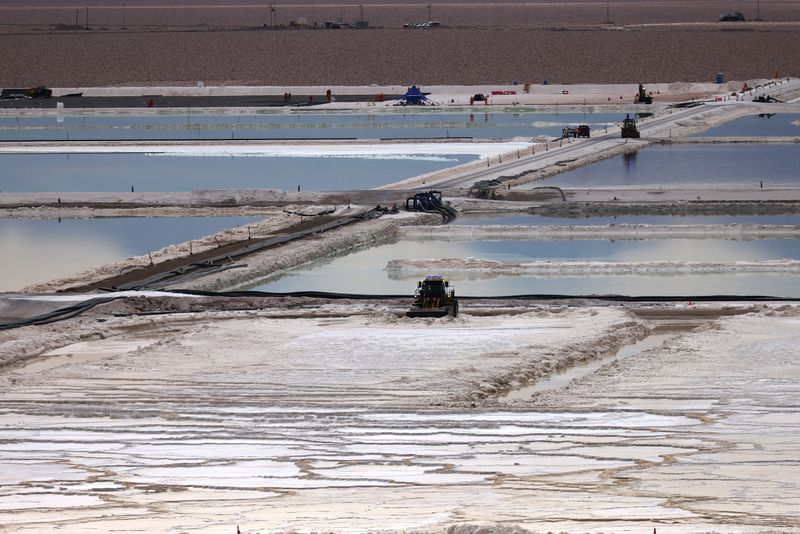SANTIAGO (Reuters) - Products made with Chilean-mined lithium - used for electric-vehicle batteries - will be eligible for U.S. tax benefits, the Andean country's government said on Thursday.
Chile, the world's largest copper producer and second-largest lithium producer, will be eligible for tax breaks laid out in the U.S. Inflation Reduction Act (IRA), which includes subsidies for electric vehicles based on their battery metal sourcing.
The IRA requires a certain percentage of the critical metals in the battery come from the U.S. or a country with which it has a free trade agreement.
As Chile has a free trade agreement with the U.S., the two countries "made it explicit" that Chile was eligible for the tax breaks, the economy ministry said.
U.S. President Joe Biden's administration had proposed a tough threshold on firms controlled by China, Russia, North Korea and Iran.
In Chile, local firm SQM's second-largest shareholder is Tianqi Lithium, a Chinese player with a sprawling grip on the lithium market.
SQM is currently ironing out the details of a joint venture with Chilean state-run copper miner Codelco as part of a government mandate to boost state control over the lithium industry.
The only other active producer of the white metal in Chile is Albemarle, from the United States.

The IRA tax breaks will incentivize Chile's export of raw lithium materials as well as costlier cathode material and lithode byproducts, the economy ministry said.
The South American country also recently launched initiatives so that those who use lithium as a raw material can receive preferential pricing from miners.